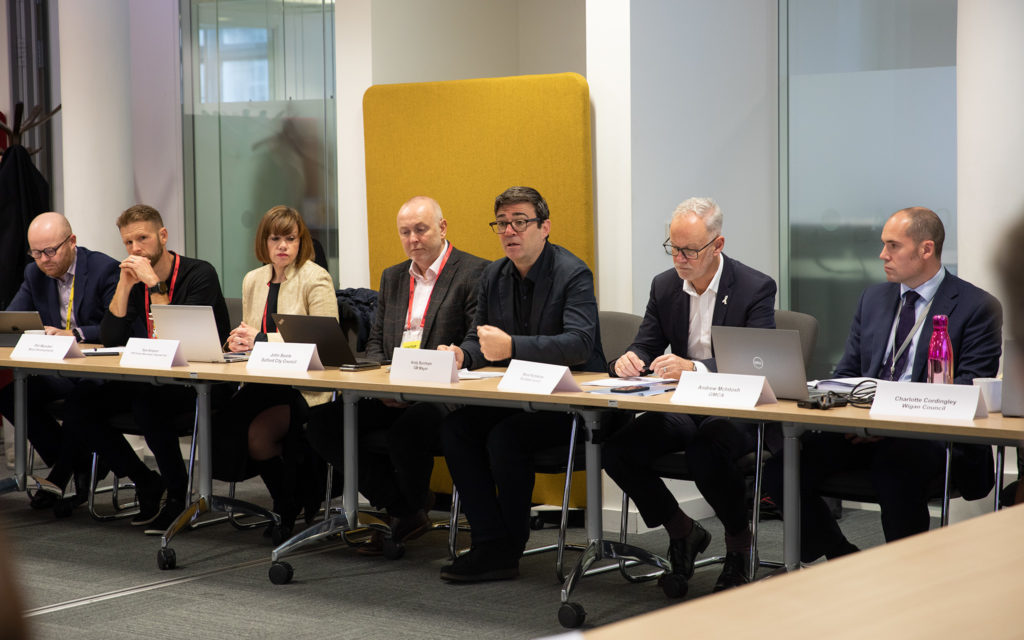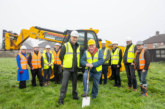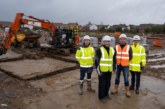A new task force which aims to help deliver 30,000 net zero social rented homes in Greater Manchester by 2038 has met for the first time.
The Greater Manchester Truly Affordable Net Zero Homes (TANZ) Task Force — which brings together industry leaders, experts and stakeholders from across local authorities, housing providers, University of Salford, Greater Manchester LEP, developers, Northern Housing Consortium and Homes England amongst others — met for the first time on Friday 18th November.
Mayor of Greater Manchester, Andy Burnham, made a manifesto commitment to deliver 30,000 net zero social rented homes across the city region by 2038 and the task force has been brought together to use their experience and technical expertise to drive forward the delivery of this target, with a specific focus on ensuring all new development will be net zero carbon by 2028.
Net zero carbon housing will help us deliver growth with the creation of new jobs, reduce the amount of carbon consumed to power and heat homes and reduce energy costs for tenants and residents at the same time.
At the moment, progress is slow due to constraints around funding and technology, so Greater Manchester is bringing together experts to unpick the issues and begin to remove barriers to accelerate the pathway to net zero new development.
However, Greater Manchester is the first part of the country to begin building net zero carbon homes for social rent. One Manchester has completed two net zero social rented homes forming part of a wider 22 low carbon homes development. The Salix Homes Greenhaus scheme, currently on site, includes 11 net zero social rented properties with expected completion in March 2024.
Despite the delivery of net zero homes remaining challenging and being restricted to a small number of trailblazing developers, Greater Manchester is forging ahead with flagship schemes to deliver more truly affordable net zero carbon homes in Trafford and Wigan with other parts of Greater Manchester preparing plans.
 Mayor of Greater Manchester, Andy Burnham, said: “The delivery of net zero carbon homes — particularly those available for social rent — is a vital way for making Greater Manchester a green and fairer place.
Mayor of Greater Manchester, Andy Burnham, said: “The delivery of net zero carbon homes — particularly those available for social rent — is a vital way for making Greater Manchester a green and fairer place.
“This is a hugely impactful way of becoming more energy-efficient, not just benefitting our environment, but reducing the costs of heating and warming homes and now more than ever this is something people are becoming desperately worried about.
“In addition to this, investing in the skills development and training required for new methods of construction and modular house building required is vital and I will continue to make the case to government to give us greater local powers and investment to do this so we can continue to lead the way and build on the existing net zero homes projects already underway here.
“This Task Force brings together a highly skilled and experienced group of people who will drive Greater Manchester forward and deliver the 30,000 net zero carbon homes for social rent our region needs to be green and fairer.”
Steve Rumbelow, Chief Executive Portfolio Lead for Place Based Regeneration & Housing chairs the Task Force, and was joined by the Mayor for the inaugural meeting, to set out the mission and vision for the Task Force.
The first meeting of the Task Force included introductions, a review of existing net zero housing development and challenges of delivery at scale, and an overview and discussion of barriers of delivering of exemplar projects.
Steve Rumbelow said: “To meet Greater Manchester’s ambitions of reaching net zero carbon by 2038, we must tackle the residential component of carbon emissions. Every new home that is built that is not net zero carbon adds to the retrofit challenge that we face as we try to decarbonise our existing housing stock. At the same time, we have to make energy consumption smarter and more affordable for local people within their homes.
“The delivery of 30,000 net zero carbon social rented homes is a huge step up from business as usual and requires a major reengineering of existing ways of working across the supply of land, construction, skills, funding, infrastructure, supply chain and most importantly how this impacts people. That’s why this task force is so important in bringing all the right people and experience together to work towards the goal of making social housing more affordable and green. The Task Force will help to lobby for, progress and coordinate the changes necessary.”









